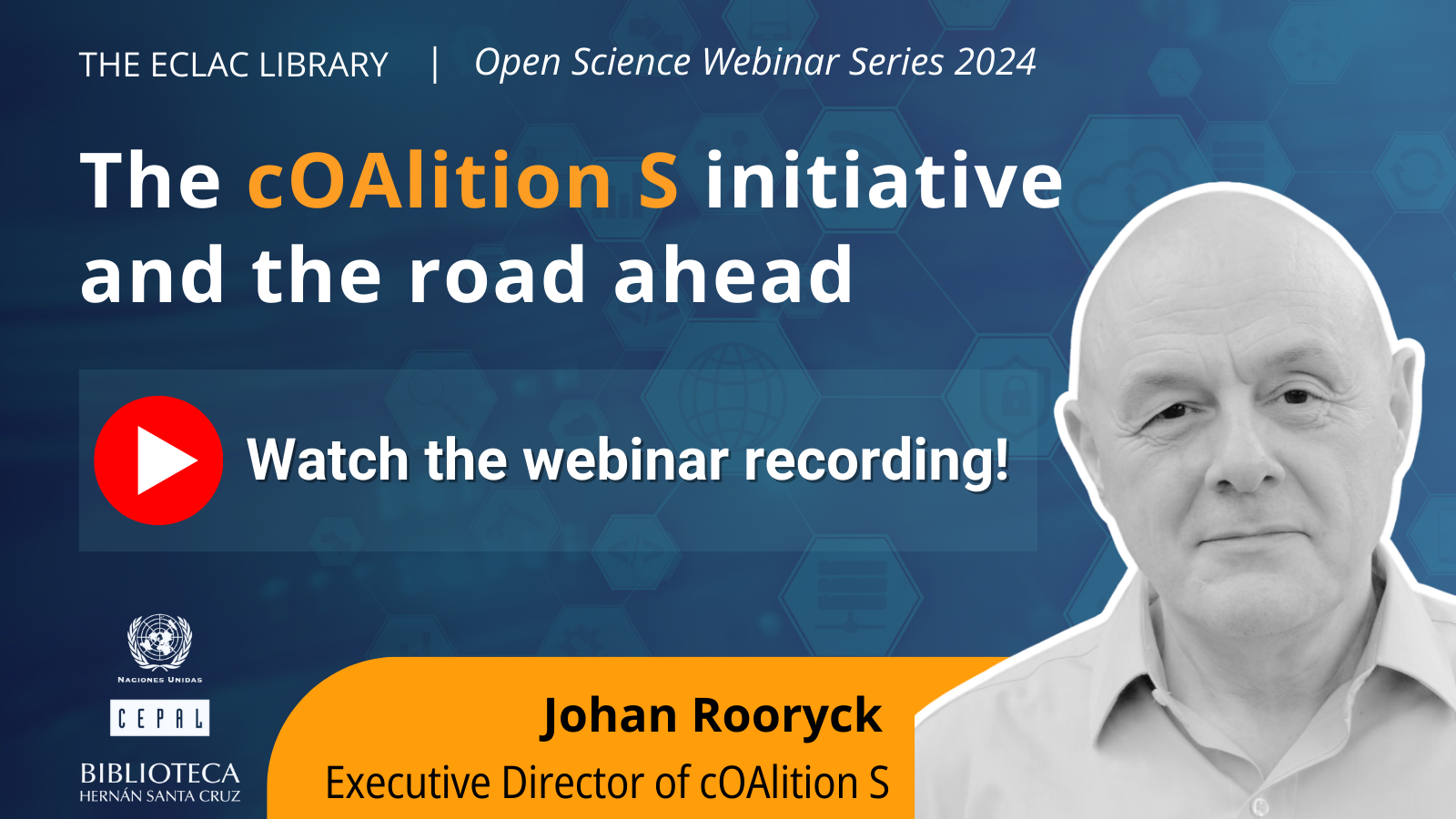The cOAlition S: an initiative for Open Access to research publications
Tema(s)
Watch the recording of the webinar on cOAlition S, an initiative dedicated to achieving full and immediate Open Access to research publications.

Watch the webinar recording where the Executive Director of cOAlition S, Johan Rooryck presented the initiative's accomplishments and future plans aimed at facilitating the transition to an open, trustworthy, and equitable scholarly communication system.
cOAlition S comprises 28 organizations worldwide; research funders and other organizations committed to promoting open access.
Rooryck introduced the open access publishing framework "Plan S," which consists of over ten principles designed to ensure that all scholarly publications resulting from publicly or privately funded research are freely available to the public. Key principles of Plan S include:
- Immediate Open Access: All peer-reviewed papers must be available immediately upon publication.
- Licensing: Publications should be released under a CC BY license (or equivalent), allowing others to share and adapt the work while ensuring authors retain their intellectual rights.
- No Hybrid Model: Hybrid publication models (where some content is open access, and some is not) are prohibited, except as a transitional arrangement with a defined endpoint.
- Transparency in Costs: Pricing, contracts, and publication fees should be transparent and align with the services provided.
- Support for Publication Fees: Funding bodies commit to covering publication fees, relieving individual researchers of this financial burden.
- Assessment of Research Outputs: Research outputs should be assessed based on their intrinsic merit rather than the venue of publication or quantitative metrics.
The presentation detailed three routes to compliance with Plan S and introduced the cOAlition S' Journal Checker Tool, which helps researchers navigate the Open Access Routes and identify how journals can meet their Open Access obligations. Rooryck also presented the Action Plan for Diamond Open Access and discussed key developments for a future strategy.
He offered several key recommendations for fostering a more open and equitable open access scholarly publishing environment. At the national policy level, it is essential to develop a Plan S-compatible Open Access policy and incorporate Rights Retention clauses to empower researchers, as seen in countries like Slovenia and Spain. Additionally, developing a policy for Diamond Open Access and endorsing the Action Plan for Diamond Open Access are vital steps. Funders are encouraged to consider joining initiatives like Open Research Europe (ORE).
On an individual level, researchers are urged to retain their rights by publishing under a CC BY license and to either join or establish Diamond Open Access journals, Rooryck shared.
País(es)
- Latin America and the Caribbean
- Europe